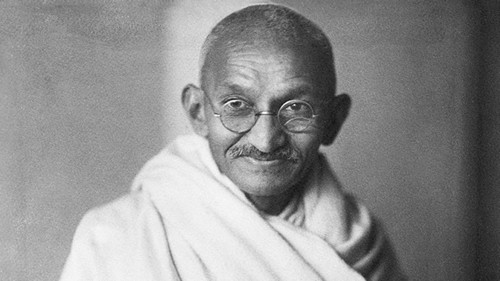Charismatic leadership is a leadership style or form that is defined by the way a leader presents his or her charm to influence and persuade the audiences or teams. It is how a leader uses charm, different qualities, and methods of communication to influence people around them.
Charismatic leaders have an appealing personality trait that helps them connect with people deeper and understand them more clearly. Charismatic leaders are very clear-minded and have their goals and aim fixed and plan things following their dreams.
Table of Contents
What is Charismatic Leadership?
Definition: Charismatic leadership is defined as a type of leadership in which leaders incorporate an inherent charm, skilled eloquence, and persuasiveness to make a connection with their teams at an emotional level.
This leadership lays its focus on the leader itself rather than the things that are associated with it. This leadership is a combination of various skills like excellent communication skills, interpersonal connection, charm, etc. Charismatic leaders are confident, optimistic, engaging, motivational, and charming.
This leadership focuses on creating an interpersonal relationship with the people and try to motivate them with communication. People tend to follow the leaders either as people or as successful business representatives. The behavior of a charismatic leader mainly depends on the charm factor, but it also depends on how much the charm factor will work with different people in different situations.
The History of Charismatic Leadership
The famous German Sociologist Max Weber first published a book in 1958 – “The Three Types of Legitimate Rule.” Here, Weber classified authority for governments and organizations via three different types of leaderships–
- Traditional
- Rational or Legal
- Charismatic
From here the concepts of the charismatic way of leading came into existence. Let us now have a look at the characteristic of such leaders-
Characteristics of Charismatic Leader
Every charismatic leader has some basic yet most essential characteristics; no leader can attain charismatic leadership without these characteristics. Some of these characteristics are as follow-
1. Confidence
They say confidence is the key to success. Confidence is characteristic is one of the most important characteristics of a charismatic leader. Having strong confidence is always beneficial for a leader. This confidence not only helps them in carrying themselves but also helps them in making important decisions.
A leader who is ready to take challenges with utmost confidence is successful in every field. Confidence is something that helps a leader gain the trust of others. People tend to follow and admire a confident leader whose decisions are correct and hold power in them.
2. Communication
One of the most vital pursuits of a charismatic leader is communication skills. A leader who can easily communicate with their team and members and excellently leads them is quite a successful leader. When a leader can communicate with other people and create an interpersonal connection with them, it eventually helps them understand that person much deeper than usual.
The communication skills of a charismatic leader help lead their team and people but also helps in motivating them and driving them towards the roads of success.
3. Humility
Humility is a character trait that every person should have. A charismatic leader understands imperfection and embraces all the flaws, and tries to work on them. A leader should embrace humility and accept the mistakes they make.
A charismatic leadership style helps the team understand their actual value and how much they contribute to others’ lives. This motivates the team members and makes them give even better results. They praise the loyalty the team members show towards the leader and the organization they work for.
4. Visionary
Charismatic leaders have revolutionary visions. Charismatic leaders can see what can’t be seen by other peers. That is why followers follow charismatic leaders and tread in these leaders’ paths.
5. Maturity
Maturity is a factor that not everyone has. A charismatic leader is a person who is mature due to the responsibilities and position they are in. Maturity is a characteristic that helps a leader make wiser decisions and deal with any crisis with utmost calmness and sensibility.
A mature leader is a parent who is authoritative and is respected by everyone. The aura of a mature leader helps them in making people understand things more clearly. They tend to make orders and expect them to be followed.
6. Good Listener
A good charismatic leader is not a person who gives orders or is the only person in the room who can speak but also knows how to listen to their team members. A good leader tends to be all ears to the team members and understand their point of view a swell.
Good leaders tend to fully engage in a conversation and try to understand the speaker’s viewpoint and implement it most suitably. Active listening is a skill that every charismatic leader must-have.
How to apply Charismatic Leadership in Life?
Follow the given steps for maximizing the prospects of charismatic leadership:
a) Adopt vulnerability
Many people say charismatic leaders are not authentic. So it is asked to adopt vulnerability. Vulnerability is vital and, it is lying at the root of people’s connection. When a leader is authentic, employees or followers will trust the leader more. Even followers can relate with the leader.
It is not good to hide from followers or to pretend something that the person is not in real life. It is vital to share doubts, fears with followers or employees. It will make a company move more forward unitedly.
b) Improve Listening skills
Being a charismatic leader, a person may engage in many conversations and talks each day. It is vital to tune into what others are saying. Sometimes employees or followers may feel overlooked.
Avoid that kind of conversation but try to listen to them carefully. It is necessary to improve and develop listening skills. If someone needs any guidance, coaches or mentors may help in developing this skill.
c) Become transparent
It is not good to make fake or void promises just as it sounds good. There is a thin line between this and inspiring someone. Many charismatic leaders may consider praising as motivation. But it may turn into false praise and can have a negative effect.
A charismatic leader needs to be sincere, straightforward, and honest in communication. Charismatic leadership can make positive changes in a business. Avoiding pitfalls is necessary. Understand the weakness and strengths of the leadership style.
Examples of Charismatic Leaders
History is replete with examples of Charismatic leaders in political, business, and spiritual spheres. The most prominent amongst these names are:
1) Martin Luther King, Jr.
Living till date in the minds of people with his famous speech ‘I have a dream’; Martin Luther King Jr. was one such charismatic leader who successfully furthered the struggle for civil rights movement in the USA.
2) Mother Teresa
Designated as a saint by the Vatican, Mother Teresa began her charitable work in Kolkata, India; to help the poor, diseased and orphans.
She transformed the lives of millions worldwide through her organization ‘Missionaries for Charity’ and inspired so many to dedicate their lives to the service to humanity, just like her.
3) Sir Winston Churchill
Sir Winston Churchill performed a remarkable job of boosting the morale of the citizens of war-torn Britain during the testing times of World War II.
Britain’s struggle against the colossal German war machinery can be greatly attributed to Churchill’s highly motivating, patriotic addresses to the nation as well as his strategic decisions.
4) Lee Iacocca
Lee Iacocca was a business leader who magically pulled Chrysler Motor Company in the USA out of bankruptcy through his meticulous planning and motivating his team to follow his plan of action.
5) Mahatma Gandhi
Mahatma Gandhi immortalized the values of Truth and Non-violence in his struggle for freedom against British Rule in India. He secured India’s freedom through the same values and is revered as ‘Father of Nation’ by India.
Pros And Cons Of Charismatic Leadership
Every leadership has its pros and cons, and the same goes for charismatic leadership as well.
Pros
- Charismatic leaders tend to motivate their team members to give better results.
- Charismatic leadership makes a person a good listener, which eventually helps them in understanding people more.
- The communication skills of a charismatic leader are excellent, and this also helps them in sorting out any differences between an organization and their client.
- Charismatic leaders motivate team building and collaboration with other organizations as well.
- Charismatic leaders tend to build friendly and personal relationships with their team members and connect with them deeper.
Cons
- Charismatic leadership mostly focuses on the leader than the work or people associated with it.
- Charismatic leaders often tend to be said shallow or vain.
- Charismatic leaders can be highly presumptuous at times.
- Organizations sometimes solely get dependent on the leader, which can make things a little difficult.
- It is assumed that charismatic leaders might not learn from their mistakes at the time.
Here is a video by Marketing91 on Charismatic Leadership.
Charismatic Leadership Style vs Other Styles of Leadership
Mostly, the charismatic style of leadership is similar to other ones. Few differences make charismatic leadership the best one.
a) Transformational vs charismatic leaders
- The personal vision of great charismatic leaders has a high amount of influence over the audience. Charismatic leaders mostly talk about passion and morale rather than any existing processes of doing business.
- Transformational leadership on the other hand focuses upon a common vision to improve and evolve all team members to reach another level.
b) Democratic vs Charismatic Leaders
- Democratic leaders require skills to work and are rational in the style of approach
- Charismatic leaders directly appeal to the audience’s emotions
- Working for the greater good is given importance in charismatic leadership
c) Autocratic vs Charismatic Leaders
Both of the leadership styles share similar traits, but a difference is there-
- Charismatic leaders help in inspiring people to perform better.
- Autocratic leadership uses authority for extracting good performance.
Best Practices for the Charismatic Leadership
For Charismatic leadership to be successful, the leader must incorporate the following elements in his leadership behaviour:
1) Should keep on honing communication skills
Communication skills are the asset of a Charismatic leader. He can connect with his followers on a deep emotional level by effectively communicating with them.
Thus, the leader should keep sharpening his communication skills to be able to be relevant to the needs of the changing times and his followers.
2) Should keep a broader picture in mind
The Charismatic leader shouldn’t be blind. He should keep a broader picture in his mind to lead his followers in the proper direction.
This is because the followers may not be able to spot and speak about the fallacies of the Charismatic leader.
3) Should have an eye for details and practicality
Again, it is easier for the Charismatic leader to get caught up in his ideal vision or get carried away by his popularity.
To assess the effectiveness of his leadership, the leader should keep on scanning his environment for the details of the practical execution and implementation of his programs and policies.
4) Should let the followers develop their leadership skills
To avoid the possibility of leadership void after him, the Charismatic leader should help his followers learn the traits of leadership from him and help them practice the same.
Conclusion
In short, a charismatic leader has many qualities like confidence, communication skills, motivating power, and so on. These qualities help them in influencing people to do better and build a better living standard as well.
It shapes a person’s life and trains that person to change the lives of people around them. But it is a leadership quality that requires a lot of effort and focus. Since charismatic leaders tend to significantly influence people and motivate them, sometimes it can be a little hard to keep up with the pace.
Liked this post? Check out the complete series on Leadership




